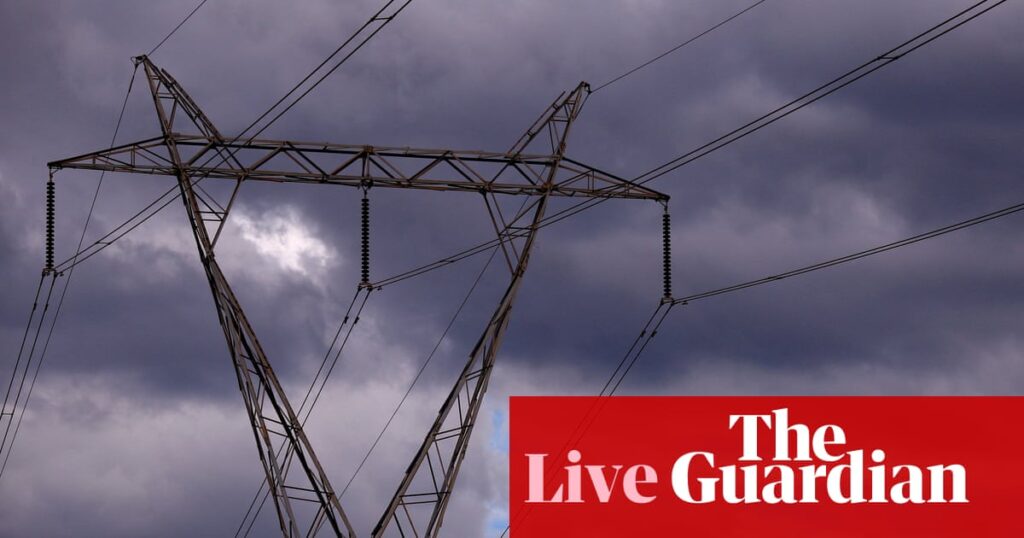
The Australian Energy Market Operator (AEMO) has released its annual report, revealing a promising outlook for the national electricity grid over the next decade. This comes as the country continues its transition from coal to renewable energy sources. Meanwhile, authorities are conducting a search for two men missing after a car plunged into a river in New South Wales, highlighting ongoing challenges in the region.
Renewable Energy Transforming Australia’s Power Landscape
According to AEMO’s latest findings, demand for large-scale electricity generation in Australia is expected to grow by 21% over the next ten years. This surge is largely driven by the rapid expansion of data centers, increased business electrification, and the integration of new industrial energy users. AEMO’s Chief Executive, Daniel Westerman, emphasized the importance of timely infrastructure delivery, particularly as 11GW of coal power stations are set to retire.
Westerman stated, “The 10-year investment pipeline to manage energy reliability is healthy.” However, he cautioned that the closure of existing coal power stations necessitates swift action in building new infrastructure to maintain grid stability.
By the Numbers: AEMO forecasts a small reliability gap of 80MW in Queensland this summer and a larger gap of 390MW in South Australia next financial year.
Challenges in New South Wales: Missing Persons and Flood Warnings
In a separate development, New South Wales authorities are searching for two men who went missing after their car crashed into the Macdonald River, north of Sydney. Emergency services were alerted to the incident just before midnight, finding one passenger who managed to escape. The search operation involves both the NSW State Emergency Service and the Rural Fire Service.
Meanwhile, heavy rainfall has prompted dozens of flood advisories across the state. The NSW SES has urged residents to exercise caution, particularly during the morning commute, as renewed flooding is forecast for coastal and northwestern areas.
Health and Social Policies: Updates from NSW and Beyond
Prue Car’s Cancer Battle
NSW Deputy Premier Prue Car has publicly shared her ongoing battle with breast cancer, expressing optimism amidst her treatment. Car highlighted the importance of continued advancements in cancer research and the need to improve treatment experiences for all patients.
Car remarked, “We need to ultimately find a cure, and ensure better survival chances for those undergoing treatment.”
NDIS Reforms and the Thriving Kids Program
Health Minister Mark Butler announced a significant shift in the National Disability Insurance Scheme (NDIS), introducing the Thriving Kids program. This $2 billion initiative aims to support children with mild to moderate developmental delays or autism, diverting them from NDIS to a more tailored program. Butler emphasized the need to control cost growth while ensuring robust support systems are in place.
Butler stated, “We want to build a system that supports kids to thrive, rather than relying solely on the NDIS.”
Media and Regulatory Developments
ABC’s New Public Comment Guidelines
The Australian Broadcasting Corporation (ABC) has introduced updated public comment guidelines for its staff. Managing Director Hugh Marks noted that these changes are not directly linked to recent legal cases but are part of a broader effort to ensure staff communications do not negatively impact the broadcaster’s reputation.
Marks explained, “We needed guidelines that capture the broader environment beyond just social media.”
Construction and AI Discussions
The Business Council of Australia has reported a consensus on pausing the national construction code, following recent economic reform roundtable discussions. CEO Bran Black highlighted the need for careful consideration of AI’s role in the workplace, advocating against premature regulation that could stifle technological opportunities.
Black warned, “Rushing to regulate AI could lead to missed opportunities and jobs moving overseas.”
Environmental Concerns: The Antarctic Threat
A new scientific review has raised alarms about potential abrupt changes in Antarctica, which could have catastrophic global consequences. The study, involving 21 scientists, underscores the urgent need to reduce greenhouse gas emissions to prevent irreversible impacts on sea levels and ecosystems.
Dr. Nerilie Abram, lead author of the study, stressed, “The only way to avoid further abrupt changes is to limit global warming to as close to 1.5°C as possible.”
As Australia navigates these diverse challenges, from energy transitions to environmental threats, the nation’s ability to adapt and innovate remains crucial. The coming years will test Australia’s resilience and commitment to sustainable development and social welfare.







